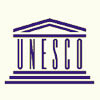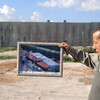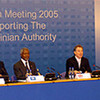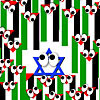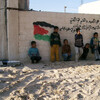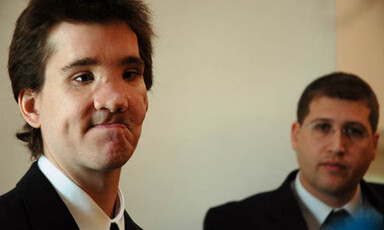
Unilateral Give, Unilateral Take
3 March 2005
In days of yore, when right-wing thugs shouted “Arik, King of Israel!” leftist leaders grimaced in disgust. On Sunday, February 20, however - after the cabinet approved “Arik’s” Disengagement Plan - Labor ministers beamed with smug satisfaction. They had all they could do to keep from shouting, “Arik, King of Israel!” Sharon has begun to accomplish for them what the Oslo Accords never dared to broach: dismantlement of settlements. On that festive Sunday, few wanted to be reminded that after approving disengagement - practically in the same breath - the government decided to build its notorious “separation barrier” on a line that will unilaterally annex, in effect, 7% of the West Bank. Read more about Unilateral Give, Unilateral Take
